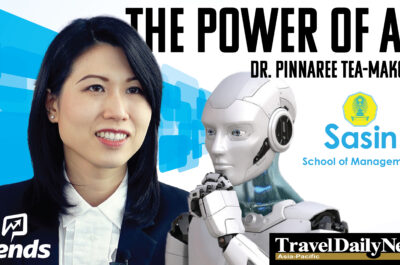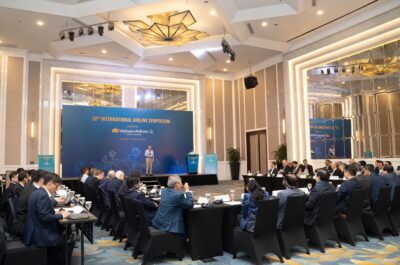Discover the rise of AI-generated influencers reshaping industries like travel and hospitality. Explore the balance between efficiency and authenticity in forging connections, and learn why genuine influence still hinges on human relatability in the digital era.
The evolution of technology never ceases to astonish – it’s no longer just lines of code powering software; now, it’s giving rise to virtual personalities that are reshaping our digital landscape. These AI-generated virtual humans have transcended the realm of algorithms to become bona fide internet celebrities, captivating audiences on social media platforms worldwide. With their uncanny lifelikeness, these digital personas forge connections as strong as those with real people, proving the boundary between the virtual and the tangible is growing ever blurrier.
It’s hard to believe that virtual influencers have been around for over a decade. But the concept has remarkably matured over the years, marking a journey that began with anime-like avatars and now boasts astonishing realism. These digital beings have morphed into multifaceted individuals, complete with their quirks, passions, and principles – mirroring our human experience. What’s even more astonishing is their ability to form partnerships with prominent players across various industries, a testament to their undeniable impact within the realm of influence. These AI-crafted personalities command immense attention, and their allure extends far beyond niche markets; we’re witnessing industry giants like Nike, Puma, Chanel, Louis Vuitton, and more embracing their potential. Notably, even tech behemoth Samsung has recognised the value of virtual influencer marketing, and the dividends are unmistakably substantial.
The mesmerising rise of AI-created online influencers should have ushered in a profound debate surrounding the nature of authenticity, cultural connection, and the very essence of human influence. However, the coverage of this topic is very disappointing, which is rather sad since the intriguing intersection of technology and culture deserves a careful examination of the capabilities and limitations of AI-generated personalities in the realm of modern influence.
Imagine the fervour of the early 2000s, when an obscure genre of music known as “cyberfolk” captured the imagination of a small online community. Characterised by its fusion of electronic beats and folk melodies, cyberfolk was embraced as a counter-culture movement, a sonic rebellion against the mainstream. Fast forward to the present, where AI-driven algorithms have managed to replicate the unique facets of cyberfolk, producing songs indistinguishable from those crafted by human hands. The result? Spotify and other streaming platforms have immediately used the opportunity to replace genuine artists with fabricated counterparts and AI-generated tracks.
While this strategic move may bolster their profit margins, it raises concerns about the integrity of the music experience. By prioritising potential profitability over artistic authenticity, streaming services risk transforming the act of music listening into a lacklustre and uninspiring endeavour. This trend, driven by financial motives, threatens to diminish the vibrant tapestry of emotions that genuine musicians and their creations evoke in listeners, highlighting the delicate balance between commercial interests and artistic expression.
What does it have to do with AI-created influencers? Well, just as cyberfolk musicians were once united by a shared subculture but then lost the connection in the world of fabricated music, we now confront a similar phenomenon in AI-created online influencers, where algorithms simulate the persona of human influencers to engage with audiences.
Proponents champion AI-created influencers for their inherent efficiency, scalability, and potential to revolutionise digital marketing. These algorithmically-generated personalities can churn out content at an unprecedented pace, embody specific personas with pinpoint precision, and engage audiences across geographical boundaries. In a data-driven age, AI influencers appear as strategic assets for brands, promising to navigate complex algorithms and optimise return on investment with minimal human intervention.
However, beneath the surface lies a fundamental question: can AI-generated influencers truly replicate the authentic connections that human influencers establish with their audiences? Influence transcends mere numbers; it hinges on the ability to resonate with emotions, experiences, and shared values. AI algorithms can analyse user behaviour, predict trends, and tailor content, but to they possess the emotional depth to forge the personal bonds that human influencers cultivate?
Just as the cyberfolk genre’s allure lay in its underdog status, human influencers thrive by sharing personal narratives — stories of triumph, vulnerability, and growth. These stories create relatable touch points that bridge the gap between influencer and follower, forming a profound connection rooted in shared experiences. While AI can mimic this pattern, it remains confined within predetermined algorithms, lacking the spontaneity and imperfections that make human influencers relatable and authentic.
Critics raise a cautionary flag, highlighting AI influencers’ creation processes’ opacity and potential for ethical missteps. The potential blurring between authenticity and deception is a looming concern in a space where trust is also important. While AI-generated content may be compelling on the surface, it might lack the soul, empathy, and personal touch that human influencers provide.
At the heart of cultural resonance is the recognition of the intention behind creation. Our brains are wired to respond positively to content believed to be created by human hands, driven by genuine purpose. This extends to influencer-generated content, where audiences value intentionality and emotional authenticity. While AI can predict trends, it struggles to capture the diverse spectrum of human emotions that underpin genuine influence.
In this epoch of technological advancement, our journey into the realm of AI-created influencers must be cautious, underpinned by the preservation of authenticity and meaningful connections. The allure of efficiency and novelty should not overshadow the value of genuine human interactions. A balanced approach is paramount as we navigate this uncharted territory, harnessing AI’s strengths while safeguarding the authenticity that defines true influence.
Just as the cyberfolk movement eventually receded with all its electronic echoes and folk undertones, the influence of AI-generated personalities may also find its limitations in capturing the multifaceted nature of human experiences. While AI’s capabilities are undeniable, influence remains deeply intertwined with the authenticity, relatability, and empathy that only humans can offer. As we traverse this ever-evolving landscape, let us remember that authenticity will forever be the linchpin of genuine connection in a digital world brimming with innovations.
Karine is the Managing Director of Midas PR and serves the company as its “Master Connector”.
She has over 20 years of experience driving PR strategy for leading organisations in various sectors, launching Midas PR in 2007 after gathering ideas, honing her skills in Luxembourg, and refining her PR approach by working in Thailand. Over the last 16 years, Midas PR has achieved strong and consistent growth and today is recognised as one of Thailand’s leading multi-award-winning PR and communications firms. Alongside heading up the Midas team, Karine is Chair for the PRCA Thailand and a member of PROI Worldwide.
Karine is also a renowned thought leader and in-demand speaker on industry topics such as reputation management, corporate communications, and diversity and inclusion. She has shared her insights at several leadership, business and PR conferences, such as the Women in Business Series and the Thailand Startup Summit.
A passionate advocate for female leadership, Karin aims to serve as a role model for other women and inspire them to pursue their aspirations. She co-founded The Lionesses of Siam, a distinctive social and business networking group exclusively for women in Thailand. She has been honoured with several awards, including the Prime Award for International Business Woman Of The Year 2023.




![[PR] PR_Ascott and Vimut Hospital_2024](https://www.traveldailynews.asia/wp-content/uploads/2024/04/PR-PR_Ascott-and-Vimut-Hospital_2024-400x265.jpg)
































































